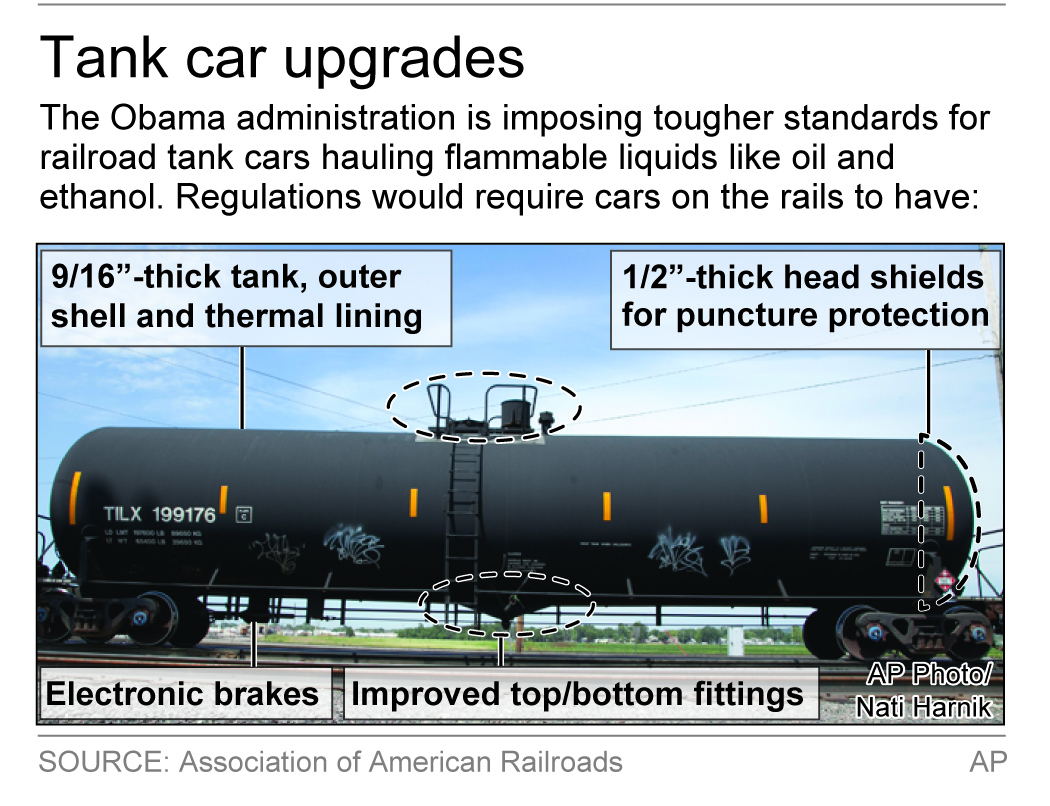A train carrying oil derailed and exploded in North Dakota on Wednesday, nearly a week after federal regulators issued aggressive new standards to guard against tanker car disasters.
Photos of the early morning destruction showed a long line of oil tanker cars on fire, with thick black smoke billowing above the derailed petroleum caravan just 115 miles northeast of the state’s capital of Bismarck.
The cause of the derailment was not immediately known and no injuries were reported. News reports from the scene said an investigative team from the Federal Railroad Administration was expected on the scene later in the day.
North Dakota has become one of the nation’s lead producers of oil from shale. The petroleum is produced using a highly debated process known as hydraulic fracturing, or “fracking,” to puncture rock deep underground to extract oil and gas.
The train operator, BNSF, said the tanker cars carrying oil were upgraded models that the industry voluntarily began replacing its older fleet with in 2011. The tank cars were supposed to be more crash-resistant, according to the Associated Press.
On May 1 the Department of Transportation announced new safety rules for oil tankers that include steel-reinforced improvements to their hulls to make them less vulnerable to explosions when derailments occur.
The rules also include new speed limit standards and upgrades in braking technology that the oil industry says would provide questionable benefits.
The American Petroleum Institute said in response to the rules that federal regulators also should consider the rails themselves, not only the tank cars.
“Accident investigations consistently show that more must also be done to prevent derailments by enhancing the inspection and maintenance of train tracks, axles and other railroad equipment,” Jack Gerard, the oil group’s president and CEO, said in response to the new rules.
There was little word on the cause of the derailment. Local first responders were busy trying to contain the fire, while no injuries or deaths were reported.

